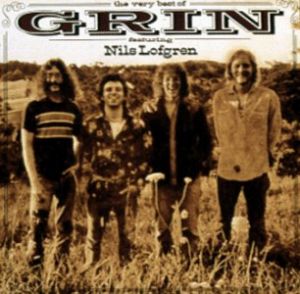
- Format: FLAC

The failure of Grin to sell large numbers of records in the early '70s is one of those mysteries of popular music. They seemed to have everything, all in the person of leader Nils Lofgren, an accomplished guitarist and songwriter with a connection to the CSNY axis who had played on Neil Young's After the Goldrush when he was only 18. He was still under 21 when the first, self-titled Grin album was released in 1971. Maybe his youth had something to do with the band's limited commercial success; he often let other band members take lead vocals on the songs he wrote, preferring a group context that sometimes hid his talents. Nevertheless, the band's albums garnered good reviews and the first three (of four) made the charts, with "White Lies" charting as a single. Those albums were stylistically diverse and somewhat uneven, but contained catchy pop-rock songs ("Like Rain," "Love or Else," "Sad Letter"), any one of which could have changed Grin's story with the right promotion. This well-chosen best-of (actually the second one, following a 1976 LP, despite a sticker on the CD proclaiming "1st-Ever GRIN 'Best-Of' Collection!"), containing a couple of previously unreleased tracks and a non-LP B-side, accurately portrays the band's pop-folk-rock-country sound, from "Everybody's Missin' the Sun" (which could have fit on After the Goldrush easily) to "You're the Weight," from the band's 1973 swan song Gone Crazy, licensed from A&M Records. Lofgren, of course, went on to a more successful solo career from the mid-'70s to the mid-'80s before becoming "the most overqualified second guitarist in rock" in Bruce Springsteen's E Street Band, as Springsteen himself put it. But the work of Grin is more than juvenilia: In the early '70s, it was good enough to make fans frustrated that the band didn't get more of a hearing. And it sounds just as good more than 25 years later.